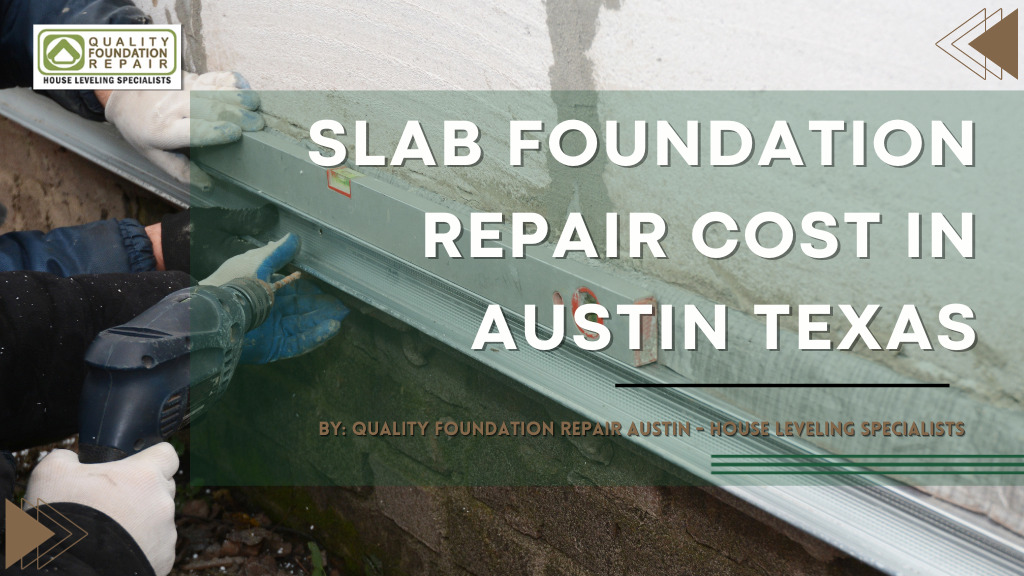
- Average Cost of Foundation Repair
- Average Cost of Foundation Repairs by Issue
- Foundation Repair Prices by Type
- Other Cost Factors Affecting the Foundation Repair Price You Pay
- Additional Considerations for Foundation Repair
- Types of Foundations
- Signs You Require Foundation Repair
- DIY or Hire a Foundation Repair Company
- Why Work with Quality Foundation Repair Austin
- FAQs About the Cost of Foundation Repair
How much does foundation repair cost? It’s a question many people ask us; the average price is between $2,000 and $7,000. However, the national average is right at $4,500. The goal is to protect the home’s structural integrity. If the foundation is sinking or unstable, you’ll deal with many problems that worsen with time.
In this article, you’ll learn about the price of various foundation repairs, the types available, and more. Let’s dive in!
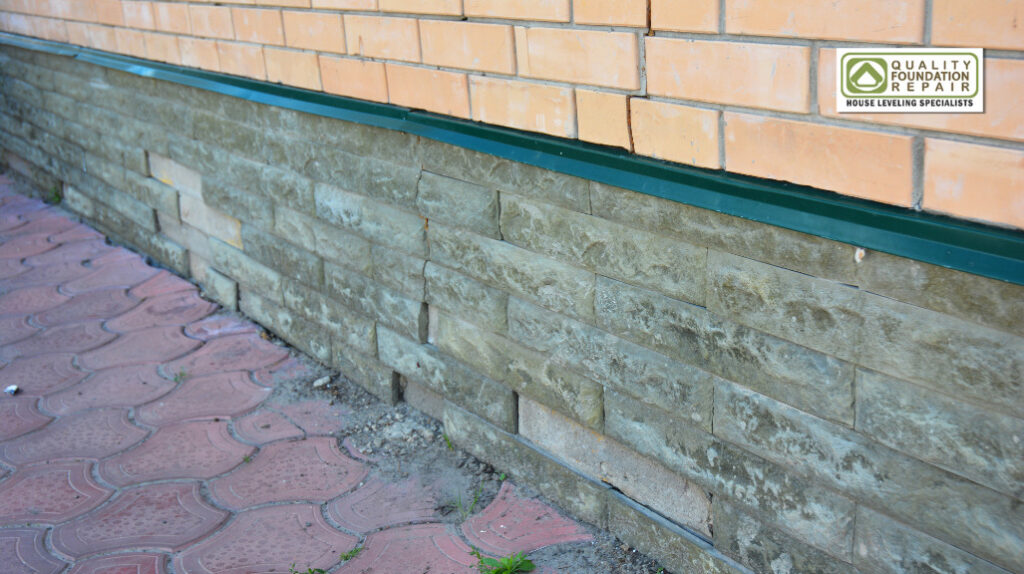
Average Cost of Foundation Repair
Cracks are the biggest issue with home foundations. They’re caused when the soil puts pressure on the foundation or the building itself settles. Overall, cracks and changes in soil pressure can lead to bowing walls and water damage.
Typically, erosion, changing weather conditions, and tree roots are the main causes of foundation problems. However, soil pressure issues can also lead to bowing and other concerns.
There are many issues that can happen with foundations. Some of them are challenging and lead to costly repairs. It might only be a few hundred dollars to fill small cracks with epoxy. However, severe foundation repair needs will run from $15,000 to $25,000.
Average Cost of Foundation Repairs by Issue
Here’s a peek at some of the common repair issues you might face and their average price ranges:
- Foundation Crack Repair – $250 to $800
- Bowing Wall Repair – $4,000 to $15,000
- Foundation Leak Repair – $2,000 to $7,000
- Sinking or Settling Foundation Repair – $500 to $3,000
Foundation Repair Prices by Type
In most cases, cracks and leaks can be fixed with waterproofing materials, concrete, epoxy, and drainage system installation, which can cost $2,000 to $7,000. House leveling and bowing walls will cost $4,000 to $12,000, depending on the repair methods used.
Overall, foundation jacking will cost $600 to $16,000, while underpinning and piering for a foundation repair will be $1,000 to $3,000 for each pier.
Other Cost Factors Affecting the Foundation Repair Price You Pay
The foundation repair type you need and the issue you face are only two factors in determining how much you pay. Major factors used to calculate the foundation repair cost will include:
- Materials, permits, and labor
- Foundation settlement and soil stability
- Severity of the problem
- Home’s size and accessibility
To get an accurate understanding of what you’ll pay, you’ll need to know what those considerations include:
Accessibility and Home Size
Larger homes will have bigger foundations and will cost more to repair. However, your home’s foundation accessibility also plays a part. If the house or problem area is hard to reach, it might raise the price. Likewise, landscaping that must be replaced and removed will cost extra.
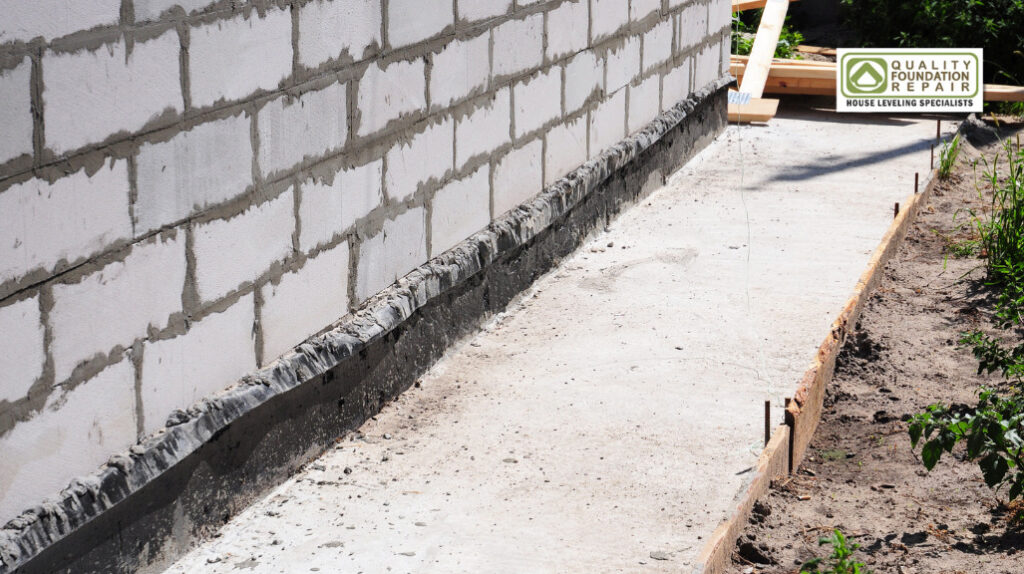
Issue Severity
Usually, minor cracks are easier and cheaper to fix than having a sinking foundation. However, catching any problems soon will save money. As the issue becomes more severe, there is more damage to the rest of the property, both inside and out.
Settlement and Soil Stability
Solid ground is a misleading term. Most people don’t know that soil contracts, expands, and shifts based on drainage and weather conditions. Some soil types are more stable. Hopefully, your home was built on the right foundation for the ground it’s on. However, if the foundation sits on poorly draining soil or expansive clay, you might see more settlement and require extensive repairs as the years go by.
Materials Needed, Permits, and Labor
There are many materials necessary for foundation repair, including filler material, pilings, waterproofing sealant, and polyurethane foam. However, you also have to factor in the price of labor. The work itself averages about $200 per hour. Though you can perform minor repairs without permission from the city, larger jobs will need permits, which cost $75 to $150.
Additional Considerations for Foundation Repair
Once you know the foundation issue and type and have considered the pricing factors above, there are a few more things to focus on. Foundation repair is an extensive project, and you may require structural engineers and soil reports. Likewise, unexpected problems might pop up, which delays the timeline and raises the total price.
Here are a few things to consider:
Soil Report
Even if the house was built on the right foundation for the soil type available, soil conditions can change throughout the years. If this has happened, you might require a geotechnical engineer to perform a soil report. They cost anywhere from $500 to $3,000.
Though soil reports are often done before the new construction happens, they can give you an idea of what’s causing your foundational problems.
Unseen Obstacles
In some cases, you may not know how severe the issue is until you start the project. There could be tree roots or old repair job remnants that must be cleared away. Therefore, it’s wise to add $1,000 to $2,500 extra into your budget to plan for those costs.
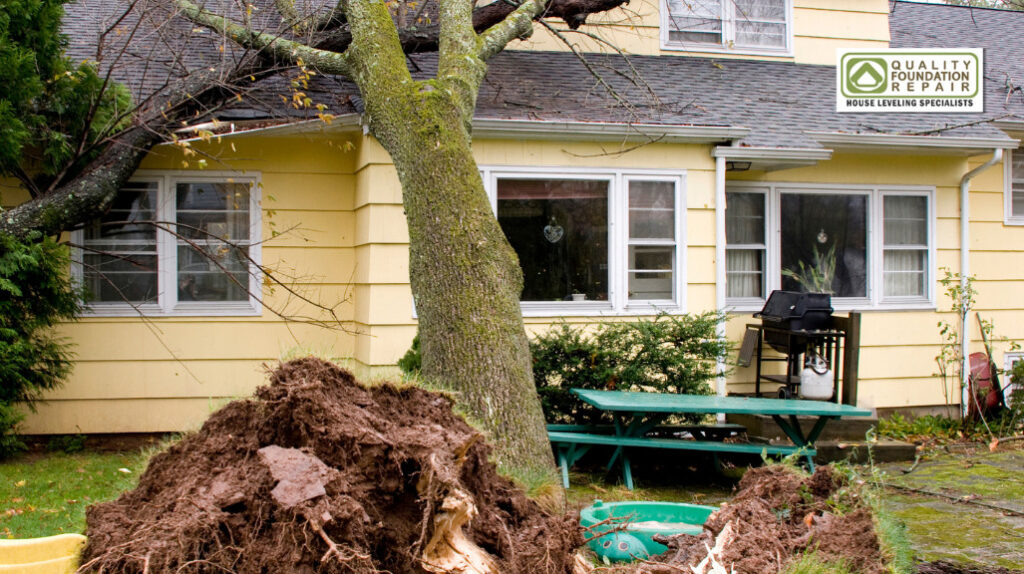
Structural Engineer Report
A structural engineer is a consultant specializing in the structural integrity of the building. With advanced foundation damage, you might need one to inspect the house and foundation, writing up the problems in a report. This costs $300 to $1,500.
Types of Foundations
Overall, the type of foundation you’ve got determines the problems you may face and how to solve them. Here are the most common options:
Concrete Slab
Concrete slab foundations have a layer of concrete above the soil, which is about 4 to 8 inches tall. They’re often used in warm climates because the freeze/thaw each year can cause cracking with time.
If you have a concrete foundation, you won’t have a crawl space or basement. This means you’ll have fewer pest issues and underground leaks, but you may have a poorly designed drainage system in the concrete.
Cinder Blocks/Bricks
Your foundation might use concrete bricks or blocks with mortar between them. Often, they get laid in an overlapping pattern and are grouted with some steel rods. This gives the slab more stability and helps with expansion and compression issues.
However, the mortar lines can bow, crack, and leak with time. Therefore, waterproofing and sealing are necessary to prevent moisture buildup. It’s wise to fix any drainage problems before adding carbon fiber or steel to reinforce the blocks.
Crawl Space
Crawl spaces are unfinished and unheated areas that house pipes and furnaces for the home and can act as storage space. If it’s built correctly, it will be well-ventilated and prevent moisture from causing problems. Usually, the walls are made of concrete blocks or poured concrete, which can develop cracks. Often, these issues are easier to address because of the access area underneath.
Pier and Beam
A Pier and beam foundation lets the house sit many feet higher than the ground. This creates an open-air space to add accessibility to electrical and plumbing fixtures. Often, the piers are made of metal, brick, wood, or concrete. They rest on the concrete footing underground. Therefore, they’re not affected by soil pressure or shifting.
However, the piers are connected to the support beams, which are connected to the floor joists in the home.
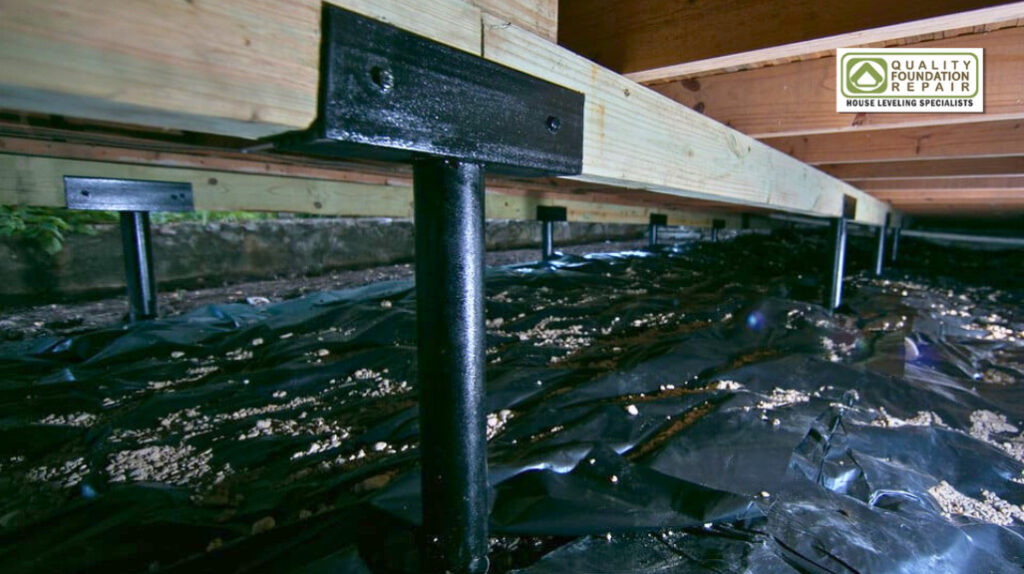
Basement Foundations
A basement foundation is an expensive option to build because it involves more construction and excavation. However, this can expand the living area of the home and is ideal in climates where winter freezes the ground.
There are foundation footings to support it under the ground, and they extend deeper than the area’s frost line. However, this also makes them very expensive to fix.
Signs You Require Foundation Repair
Spotting the signs of foundation issues can save you a ton of money. The longer the problem persists, the more damage will occur throughout the house.
Here are a few ways to identify these issues:
Exterior Signs
If you believe you have foundation damage, walk around the home and inspect the exterior walls and foundation for cracks. You can also check for gaps between the soil and foundation, which might indicate the soil is shifting. It’s also wise to check for water pooling around the house because drainage problems are a huge issue.
Early Signs
Cracks and fractures in the foundation are the earliest signs of damage. However, some cracks aren’t serious. Small vertical cracks are often minor and can be patched to prevent future foundation issues. Plus, they don’t indicate significant problems.
However, horizontal cracks indicate an unstable foundation. You should have them inspected by a professional to determine the best foundation repairs possible.
Interior Signs
Check the inside of the home and walls for cracks. There might be subtle signs, such as windows and doors that won’t open/close correctly or gaps between walls and doorframes. If you have a sinking foundation, the flooring could crack, gap, bulge, or slope, as well.
DIY or Hire a Foundation Repair Company
In most cases, you shouldn’t attempt foundation repair yourself. Though you can fix small vertical cracks with epoxy, it’s generally best to hire a professional to inspect the property and ensure there are no other issues you haven’t noticed yet.
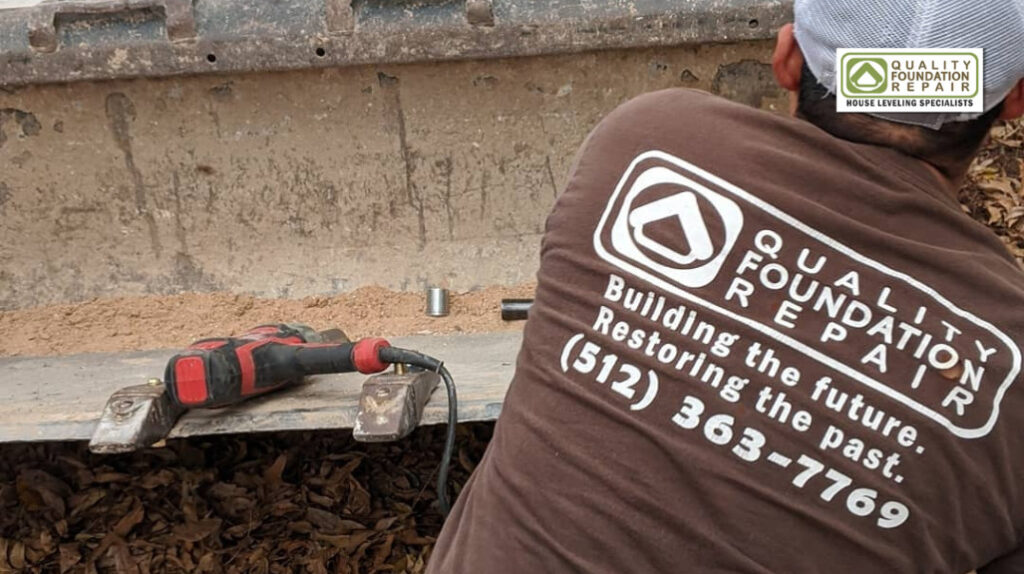
Why Work with Quality Foundation Repair Austin
It’s wise to handle foundation repair quickly. Issues like uneven floors and cracking will only get worse, leading to more expensive fixes in time. Therefore, address the signs now!
Though foundation repair can be costly, you want to resolve the problems to protect the house’s stability. Please request a free estimate from Quality Foundation Repair Austin today!
FAQs About the Cost of Foundation Repair
What Is the Best Price for Foundation Repair?
The average price for a foundation repair is $7,000 in Austin. However, foundation repair companies might only charge $2,000 or $3,000 if it’s a minor issue. It all depends on the situation and concern.
When Should You Walk Away from Foundation Problems?
It’s best to walk away from foundation issues if the total cost of the foundation repair will be higher than the home’s value. Usually, this will take years of neglect, so it’s very possible that you can get your problems fixed before it’s too late.
How Do I Know If My Slab Foundation Is Bad?
In some cases, it’s easy to determine when you have foundation issues. You’ll see cracks around or on the foundation. However, they can also be on the floor, in bricks, and on sheetrock. Sometimes, you’ll see the house shifting out of balance if it’s really bad.
Is It Normal for a Slab Foundation to Crack?
It is possible for foundations to break, move, crack, and get damaged in time. Usually, there are three primary reasons for foundation problems: under-slab plumbing issues, expansive clay and climate inconsistency, or poor construction initially.



